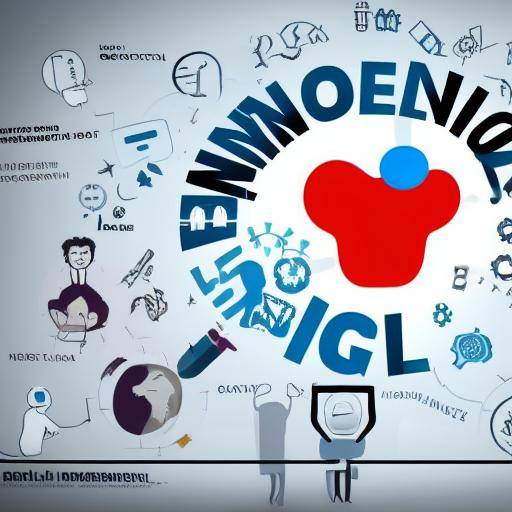
Introduction
Change management is a crucial process for organizations seeking to adapt to the demands of a constantly evolving world. Social intelligence plays a fundamental role in this regard, as it implies the ability to understand and manage emotions, both their own and others, in social and labor contexts. In this article, we will explore in detail the impact of social intelligence on change management, analyzing its influence on personal success and its relevance in the current working environment.
History and Background
Change management is not a new concept. Its roots go back to the business management theories of the twentieth century, which began to pay attention to the importance of adapting to changes in the economic and technological environment. On the other hand, social intelligence has gained relevance in recent decades following studies on emotional intelligence, developing a more holistic approach that considers social interactions as a fundamental aspect of personal and professional success.
In the historical future, we can identify relevant milestones that have marked the development of change management, from the first theories of business administration to the present, where organizational agility and continuous innovation are key to survival in a globalized and highly competitive market. On the other hand, social intelligence has gained strength as an essential skill in the working environment, especially in leadership roles, team management and strategic decision-making.
Deep analysis
Change management, when approached from a perspective that considers social intelligence, offers various benefits. For example, it facilitates effective communication within organizations, promotes empathy towards change-affected partners, and promotes a more participatory and motivating working environment. However, it also presents challenges, such as resistance to change and the need for talent management focused on the development of socio-emotional skills.
In the accelerated digital era, where constant transformation is the norm, social intelligence is positioned as an invaluable tool to face the challenges of change. This is reflected in figures that show that those organizations that prioritize skills such as empathy, active listening and collaboration, get better results in terms of innovation, talent retention and customer satisfaction.
Exhaustive examination
The practical application of social intelligence in the management of change is evidenced in cases of study that illustrate how leaders with high levels of social intelligence managed to successfully navigate through disruption situations, achieving not only mitigating the negative impact of change, but also making it an opportunity for growth and continuous improvement. These experiences offer valuable lessons on the importance of cultivating social skills in dynamic working environments.
The comparative analysis between the management of traditional change and the management of change based on social intelligence reveals significant differences in the results obtained, the adaptability of the work teams and the level of satisfaction of the collaborators. While both approaches share the objective of implementing successful changes, the incorporation of social intelligence into the process allows us to address interpersonal emotions and relationships in a more effective and humane way.
Practical Tips and Recommendations
For those leaders and professionals interested in enhancing their social intelligence in the context of change management, it is essential to develop skills such as empathy, assertive communication, conflict resolution and teamwork. In addition, it is crucial to involve the entire organization in the process of change, promoting a culture that values the diversity of opinions and fosters collaboration as the engine of transformation.
Industry Perspectives and Expert Reviews
Recognized specialists in the management of change and organizational psychology agree that social intelligence plays a leading role in the success of the processes of change in modern organizations. Their contributions range from the identification of patterns of behavior in changing environments to the implementation of social intelligence development programmes in work teams. These expert perspectives offer a comprehensive view of how social intelligence can be transformed into a strategic asset for companies seeking to thrive in an environment characterized by uncertainty and volatility.
Case studies and practical applications
Through specific case studies, it is possible to see how the integration of social intelligence in the management of change has generated successful results in organizations from different sectors. From companies in the process of international expansion to start-ups in restructuring phases, documented experiences demonstrate the relevance of socio-emotional competencies both individually and collectively, consolidating themselves as a determining factor in the capacity of adaptation and resilience of organizations in the face of change scenarios.
Future Trends and Predictions
The future landscape of the management of change and social intelligence points to a greater integration of holistic approaches that consider the human being as a whole, including its emotional and relational aspects, as an essential part of the organizational transformation processes. In addition, there is a growing interest in the measurement and evaluation of social intelligence in the workplace, with the aim of developing more effective and personalized change management strategies.
Conclusion
In short, the management of change and social intelligence are intertwined inextricably in the context of contemporary organizations. Understanding and cultivating social intelligence not only contributes to the success of the processes of change, but also has a positive impact on the working climate, productivity and satisfaction of partners. As the complexity of the working environments continues to increase, the relevance of social intelligence in the management of change will be consolidated as a key factor in the ability of organizations to prosper in a constantly changing world.
FAQs
1. What is the role of social intelligence in the management of change?
Social intelligence plays a fundamental role in facilitating the understanding of interpersonal emotions and relationships during the processes of change, which contributes to a more effective and humane implementation of organizational transformations.
2. How can social intelligence be developed in a working environment?
The development of social intelligence in the working environment involves the promotion of empathy, effective communication, conflict resolution and collaboration as key components in organizational culture.
3. To what extent does social intelligence influence personal success?
Social intelligence significantly influences personal success by contributing to the development of strong interpersonal relationships, effective leadership skills and adaptive management of change situations.
4. Is there a metric to evaluate social intelligence in the workplace?
While there is no standard metric, evaluation and measurement tools are being developed to identify and improve social intelligence skills in the working context.
5. What are the main challenges in the implementation of social intelligence in organizational change processes?
Among the most common challenges are resistance to change, lack of training in socio-emotional skills and the need for significant cultural changes within organizations.
6. How can social intelligence influence the resilience of an organization to unexpected challenges and changes?
Social intelligence strengthens organizational resilience by promoting empathy, collaboration and adaptability among the members of the organization, which allows us to face unexpected challenges and changes more effectively.
With the detailed analysis of change management, social intelligence and its impact on personal success, a comprehensive understanding of these fundamental concepts has been established. By adopting a strategic approach that integrates social intelligence into change processes, organizations can not only survive, but also thrive in a dynamic and challenging business environment.
Expanding the horizons of change management and social intelligence, a future is seen where these disciplines are intertwined even more closely, providing opportunities for sustainable growth and optimized adaptability in the business world.
This article has carefully explored the intersection between change management, social intelligence and personal success, providing a complete and objective perspective on its importance in the current working environment. By fully understanding these concepts and applying the lessons learned, both companies and professionals can overcome the challenges of change with resilience, empathy and a strategic vision in order to achieve sustainable success.

































